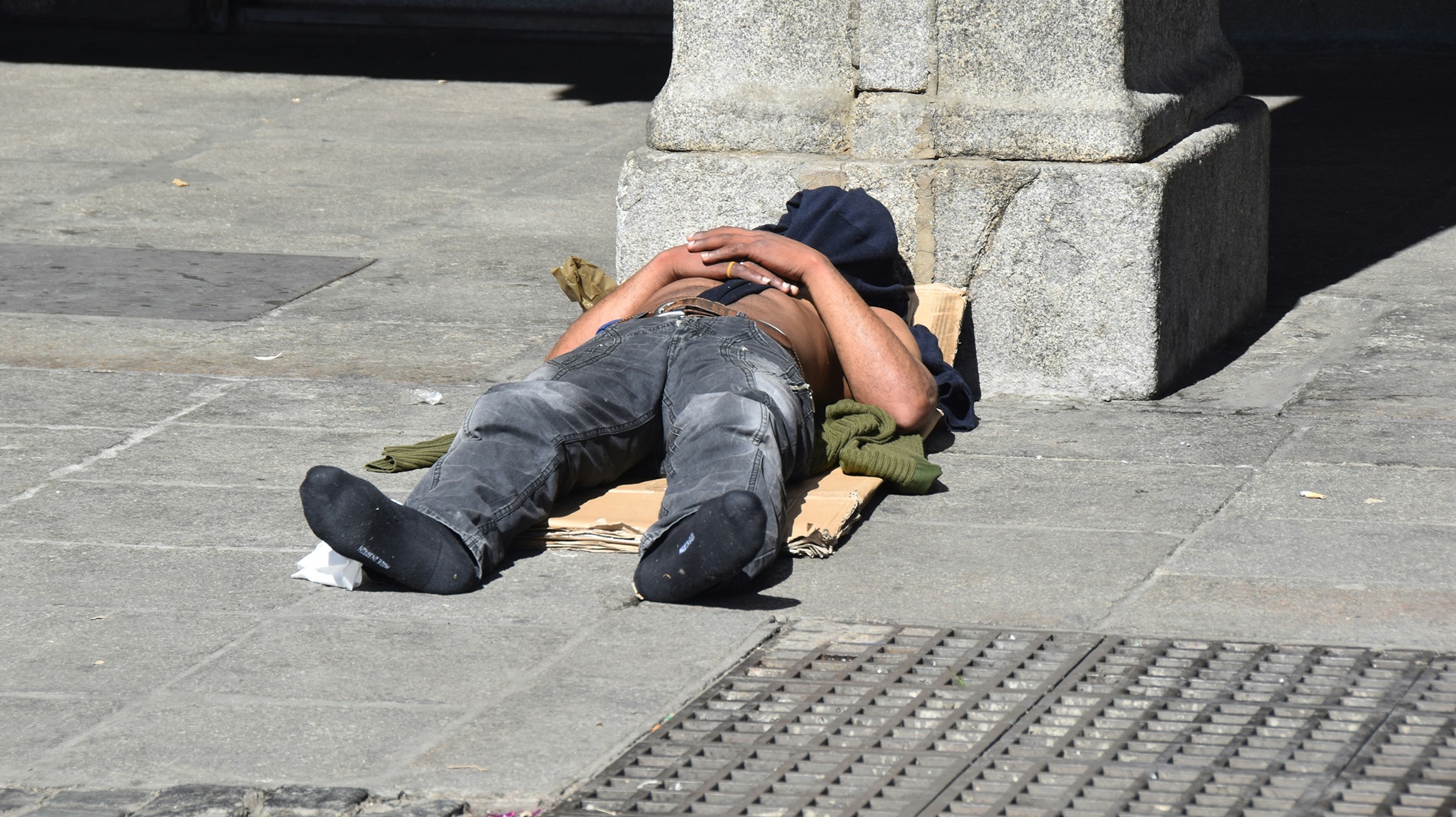Dr Becky Ward, a researcher at the University of Southampton who is investigating how climate change interacts with homelessness, told Carbon Brief that “the conversation is changing and awareness is building” about the dangers heat poses on the street.
“There’s a more fundamental need to improve the provision of shelter for people experiencing homelessness, alongside providing psychological support to address the causes and maintaining factors for people who are rough sleeping,” said Dr Ward.
The Met Office declared 2025 the hottest summer on record last month. By mid-July, the UK Health Security Agency announced around 40 heat-health alerts across different parts of England.
The warnings are issued when temperatures indicate a threat to public health, including rough sleepers who may have underlying health conditions or other vulnerabilities.
Carbon Brief asked councils with significant rough sleeping populations, including all 33 London boroughs, whether councils had been using Swep, how often and on which dates, during the summer months from 2022 to 2025.
A total of 59 councils – almost two-thirds – confirmed that they had activated Swep at least once during the summer months between 2022 and 2025.
Advertising helps fund Big Issue’s mission to end poverty
Despite the unprecedented heat, at least 20 of the councils Carbon Brief quizzed said they have never triggered Swep during the summer months, dating back to 2022. Others failed to provide any information when asked.
But the number of days Swep was in operation for in 2025 is also a record high.
Traditionally, Swep is largely associated with cold weather but climate change is shifting that reality.
There is a growing realisation that action is needed to counter extreme heat – the UK government issued its first guidance for helping homeless people during hot weather in 2023.
Read more:
By July 2025, 48 councils had triggered heat-related use of SWEPs, compared to just 36 two years earlier.
Advertising helps fund Big Issue’s mission to end poverty
But Swep is also needed in other conditions too – Big Issue recently reported on a case in Blackpool where a man died when the tent where he was sleeping was struck by a falling tree branch in high winds. The local council confirmed to Big Issue that Swep was not in operation at the time the man died.
The Museum of Homelessness previously studied the application of Swep back in 2023 to “inconsistently applied” and “inadequate”.
In response to Carbon Brief’s findings, Matthew Turtle, co-director of the Museum of Homelessness, said that Swep should be made a legal requirement to protect rough sleepers.
Turtle said: “These findings, like our own research, show that many councils opt not to help people who need it the most when there is extreme weather… This is not just smaller councils, but includes major towns and cities across the UK, who simply have no emergency protocol in place to protect people who are homeless during spells of extreme weather.”
Do you have a story to tell or opinions to share about this? Get in touch and tell us more.
Reader-funded since 1991 – Big Issue brings you trustworthy journalism that drives real change.
Advertising helps fund Big Issue’s mission to end poverty
Every day, our journalists dig deeper, speaking up for those society overlooks.
Could you help us keep doing this vital work? Support our journalism from £5 a month.





